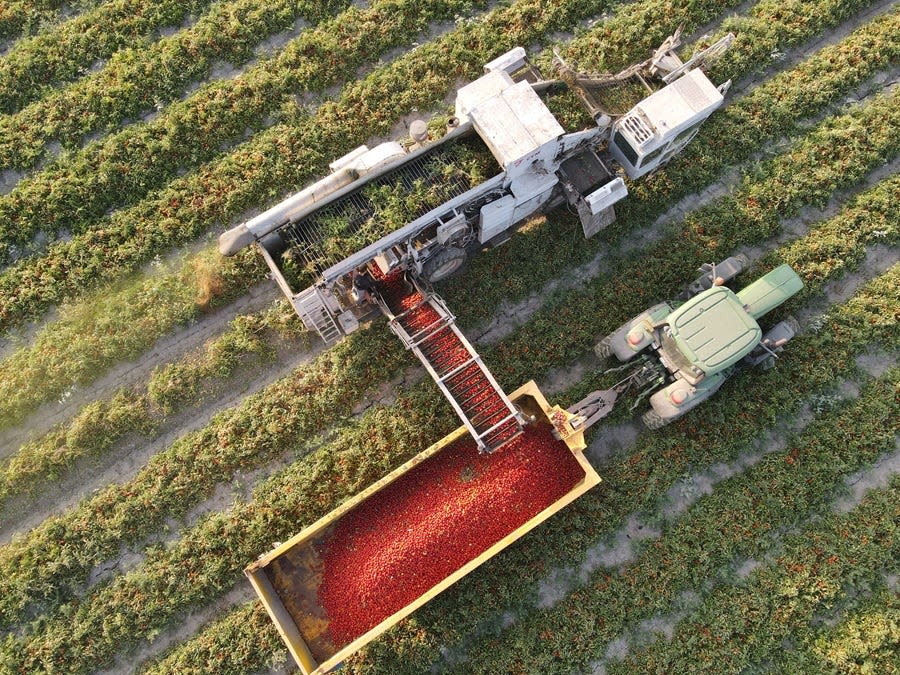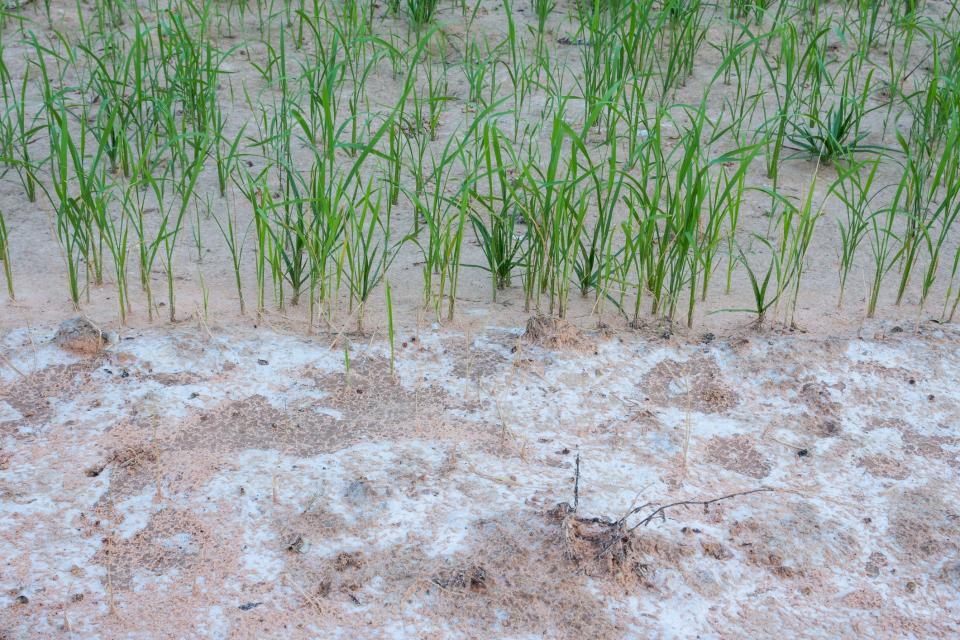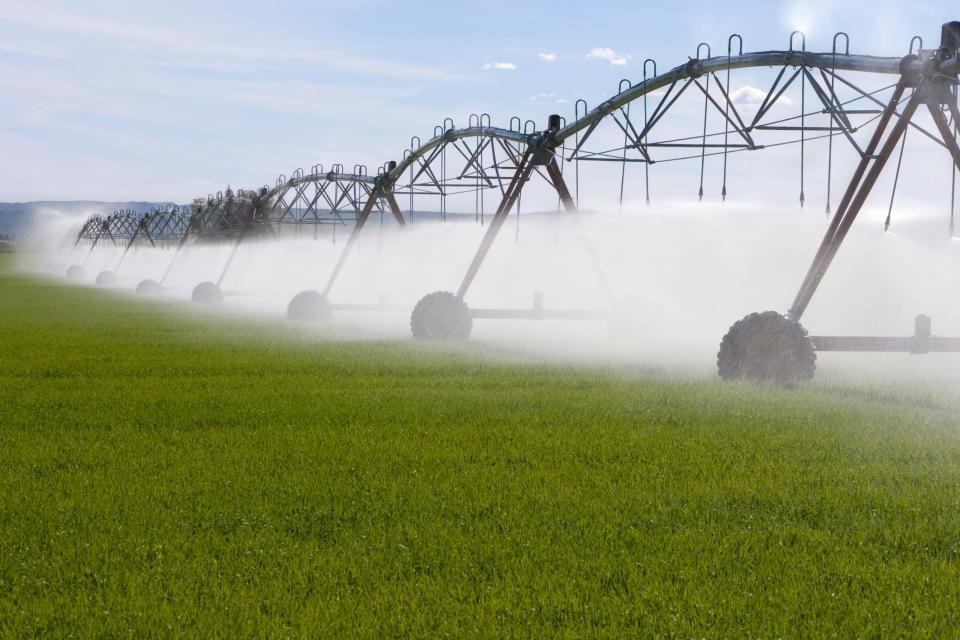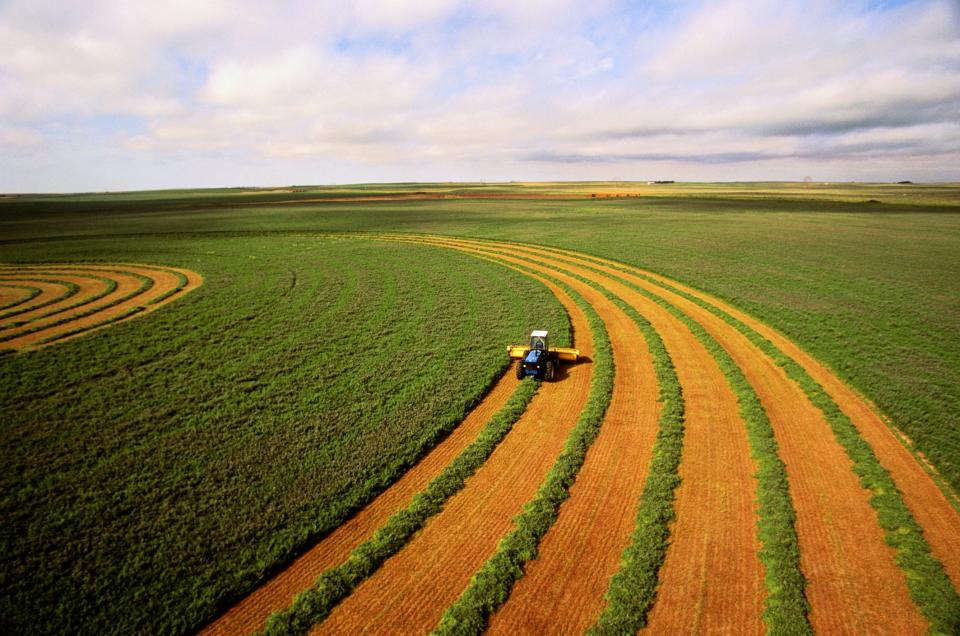-
An agricultural technology company has developed an army of resilient crops by growing them with salt water.
-
These crops are better at surviving saline soils, which is a growing problem in our warming world.
-
Salt-ravaged soil affects more than two billion hectares worldwide, reducing the crop yields people depend on.
Salt water is bad news for most crops, but not for a range of tomatoes, alfalfa, onions and rice sprouting in a laboratory in Israel.
These crops are the non-GMO brainchild of Ṛcā Godbole, a plant molecular biologist and co-founder of SaliCrop. And not only do they grow, they thrive in salt water.
For the past four years, SaliCrop has been testing its seed improvement technology on tomatoes in southern Spain, where devastating drought has caused severe salinization, the process by which soils become too salty to grow crops efficiently.


However, with SaliCrop seeds, participating tomato growers have seen a 10% to 17% increase in crop yields, earning them an additional $1,600 per hectare, SaliCrop CEO Carmit Oron told Business Insider.
Spain is just one of many places in the world with a serious salinization problem. A perfect storm of years of irrigation, global warming and sea level rise have left 20% to 50% of the world’s irrigated soils too salty to be fertile. This costs the global economy an estimated $27 billion per year in lost crops.
Meanwhile, the number of mouths to feed continues to grow and the world’s population is expected to reach almost 10 billion people by 2050, the UN estimates. “How can we grow more on lands that are increasingly deteriorating? This was the main question and the motivation for the creation of SaliCrop,” said Oron.
Godbole founded SaliCrop with Sharon Devir, an agricultural engineer, with a grand mission: to help farmers meet the challenges of our rapidly changing world and prevent famine for potentially billions of people.
“We believe this solution is a must,” Devir told BI.
SaliCrop’s saltwater success
SaliCrop scientists are developing an army of resilient crops that can grow under the pressures of our changing world, such as saline soils and warmer temperatures.
Salt occurs naturally everywhere in soil, but too much of it can make it harder for plants to take up water and nutrients, stunting their growth, reducing crop yields and ultimately endangering global food production.


More than 1.5 billion people around the world live with soils that have become too salty to grow crops efficiently. And it is predicted that it will only get worse.
In India, for example, 44% of the land is already salty, and researchers estimate that salinization will affect 50% of the country by 2050.
The problem that farmers around the world cannot escape is warmer average temperatures, which accelerate evaporation in the soil, causing salt to concentrate in the soil – especially in arid areas.
Flooding due to rising sea levels also poses a threat, especially to coastal agricultural lands, as it releases more salt into the soil and groundwater. Poor irrigation practices, such as inadequate water application, use of salt water and failure to maintain adequate drainage, can also lead to saline soils.


To help farmers combat all these factors, SaliCrop is working to bring its solution to eight different countries and is already receiving calls from seed companies in Europe, India and Africa looking for immediate solutions to improve their crop yields, Oron said .
“Plants have certain environmental stress-induced genes that act as internal alarm signals,” Godbole explains in a press release. “If there is too much salt or too much heat, these alarms go off and the plant goes into defense mode.”
Godbole came up with a way to harness those alarm bells by exposing plants to stress early in their growth cycle. In this case, that means watering crops with salt water in their laboratory. This way, when the crops are planted in saline soil, they are already well protected, making them less sensitive to saline conditions.
Based on their test data, this strategy cuts crop losses due to stress in half, and it only takes about a year to achieve that result, Devir said.
“We tailor our technology to each crop, each species and even each batch of varieties,” Devir said. This allows them to precisely target the best resilience response and maximize yield for each crop type.
Sowing the future with non-GMO crops
“We believe it is a matter of one to two years before we will have a global footprint with our solution,” Devir said. To date, SaliCrop has worked with farms ranging from 25 to 250 hectares. More than 3,700 hectares (just over four times the size of New York’s Central Park) grow SaliCrop seeds worldwide.


But SaliCrop isn’t the only company focusing on a non-GMO solution. For example, Red Sea Farms is a Saudi Arabian company that uses selective breeding to grow crops that can be irrigated with salt water. In Sweden, a company called OlsAro is growing salt-tolerant wheat by using AI to select traits that improve resilience.
Up to 783 million people worldwide face chronic hunger. The UN has set an ambitious goal to eradicate hunger by 2030, but innovative solutions are needed to improve agricultural productivity in the face of climate change.
Non-GMO resilient crops are one possible answer. “SaliCrop is a great example of how you can provide the world with a low-cost, reliable solution with no negative environmental impact, just to produce more food,” Devir said. “We believe in it.”
Read the original article on Business Insider